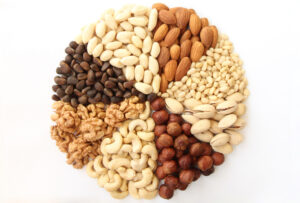
New research has uncovered simple, effective ways for adults to increase muscle mass, build a stronger body, and improve longevity through mild exercises, nutrition, and lifestyle improvements.
These discoveries are paving the way for a healthier, more vibrant life and offer hope for maintaining strength and endurance well into the adult years.
Mild Exercise for Stronger Muscles and Endurance
Contrary to popular belief, building muscle doesn’t require intense workouts. A recent study found that mild resistance exercises, such as using light dumbbell weights, or body-weight exercises like squatting, climbing stairs or jumping jacks, can significantly improve muscle mass and strength in adults, particularly those over 50. These exercises work by gradually increasing muscle fiber size and strength, which helps improve balance, mobility, and overall endurance.
Even simple daily activities such as brisk walking, cycling, swimming, or dancing, can contribute to muscle preservation and better cardiovascular health. A study published in *Mayo Clinic Proceedings* suggests that just 30 minutes of moderate physical activity five times a week can reduce the risk of chronic disease by 50%, helping individuals live longer, healthier lives.
Nutrition: Fueling Muscle Growth and Longevity
Nutrition plays a vital role in supporting muscle health. Protein-rich foods such as eggs, meats, fish, beans, and dairy products help repair and grow muscle tissue. A study from the *American Journal of Clinical Nutrition* showed that adults who consumed adequate protein daily experienced greater muscle growth and retention, even with light exercise.
In addition to protein, omega-3 fatty acids found in fish, fish oil, walnuts, flaxseeds, and other nuts and seeds, have anti-inflammatory properties that support joint health and reduce muscle soreness after exercise.
Magnesium is essential for muscle contraction and the forming of proteins in the body. It is a mineral that can improve exercise performance, especially for people who are deficient in magnesium. Deficiency can come from alcohol use, diabetes, taking certain medications, and it is also common in older adults who don’t digest nutrients as well. Magnesium is also widely known to be an effective natural sleep aid.
Healthy Lifestyle Habits
Adopting a healthy lifestyle that includes adequate sleep, stress management, and hydration, is just as important as exercise and nutrition for good muscles and good health.
According to research published in *Frontiers in Aging Neuroscience*, adults who sleep 7 to 9 hours a night experience better muscle recovery and mental clarity. Another study from China found that good sleep quality is associated with greater muscle strength, while short sleep duration may be a risk factor for decreased muscle.
Proper hydration, including good amounts of pure, filtered water, is recommended by *The Journal of the American College of Nutrition*. Healthy liquids support muscle contractions and nutrient transport throughout the body, further enhancing performance and strength.
Conclusion
Regular exercise, a nutrient-rich diet, good sleep, and healthy habits can all work together to build a stronger, more resilient body and an overall sense of strength and well-being.
This natural health news is shared by Nutrition Breakthroughs, maker of the original and effective calcium and magnesium based sleep aid Sleep Minerals II.
Julianne H. of Canada says: “I continue to tell my friends about how Sleep Minerals II has changed my life. I am fully retired now but still remember driving to work and wondering if I would make it there due to sleep deprivation. And the debilitating leg cramps that used to occur every night have now become history. My legs were sore even into the next day. It’s great to be sleeping so much better, no more sore legs, and my calcium levels are being kept constant.”




 Greetings to you,
Greetings to you,


